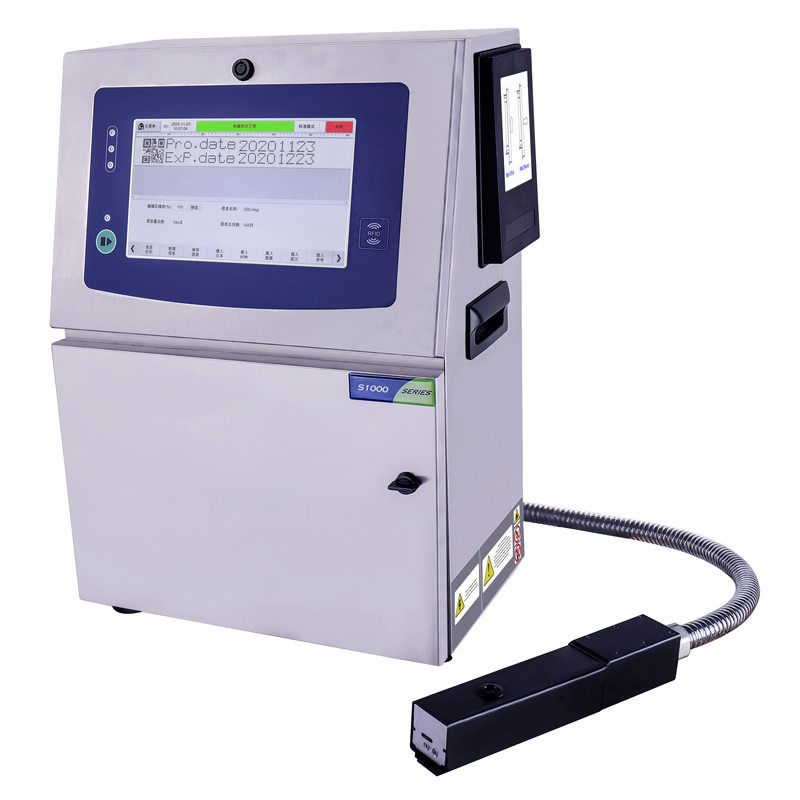Benefits and Advantages of Continuous Inkjet Printers in Industrial Printing
Continuous inkjet printers have become an integral part of industrial printing processes, offering numerous benefits and advantages that contribute to enhanced efficiency, productivity, and cost-effectiveness. In this article, we will explore the key benefits and advantages of small character continuous inkjet printer in industrial printing applications.
1. High-Speed Printing: Continuous inkjet printers are renowned for their high-speed capabilities, allowing for rapid printing of large volumes of materials. These printers can produce thousands of prints per minute, making them ideal for high-demand production environments where time is of the essence.
2. Versatile Substrate Compatibility: Continuous inkjet printers are designed to work with a wide range of substrates, including various types of paper, plastics, metals, and more. This versatility makes them suitable for printing on different surfaces and materials commonly used in industrial settings.
3. Quick Drying Inks: Continuous inkjet printers utilize specially formulated inks that dry quickly upon contact with the substrate. This feature ensures minimal smudging and smearing, even at high printing speeds, resulting in clean and crisp prints.
4. High-Quality Prints: Continuous inkjet printer offer excellent print quality, capable of producing sharp, clear, and precise prints. With advanced technology and fine ink droplet control, these printers can achieve high-resolution printing, allowing for intricate details, small fonts, and intricate graphics.

5. Cost-Effective Operation: Continuous inkjet printers are known for their cost-effectiveness in industrial printing applications. These printers typically have low ink consumption, reducing ink costs over time. Additionally, they require minimal maintenance and have long-lasting printheads, resulting in lower overall operating expenses.
6. Non-Contact Printing: Continuous inkjet printers employ a non-contact printing method, which means that the printhead does not physically touch the substrate during the printing process. This non-contact feature eliminates the risk of damage to delicate or sensitive materials, making them suitable for a wide range of applications.
7. Variable Data Printing: Continuous inkjet printers excel in variable data printing, allowing for customization and personalization of each printed item. This capability is particularly useful in industrial applications where unique codes, serial numbers, barcodes, or product-specific information need to be printed on individual items.
8. Easy Integration and Connectivity: Continuous inkjet printers can be seamlessly integrated into existing production lines and workflows. They often come with various connectivity options, enabling communication with other devices and systems for streamlined operation and efficient data exchange.
9. Minimal Downtime: Continuous inkjet printers are designed with reliability and uptime in mind. They have features such as automated maintenance routines and self-cleaning mechanisms, reducing the need for manual intervention and minimizing downtime due to maintenance or printhead cleaning.
10. Environmental Sustainability: Continuous inkjet printers often utilize environmentally friendly inks and have energy-saving features, contributing to sustainability efforts. These printers are designed to minimize waste, optimize ink usage, and reduce energy consumption, aligning with green initiatives in industrial printing operations.
In conclusion, continuous inkjet printers offer significant benefits and advantages in industrial printing applications. From their high-speed capabilities and versatile substrate compatibility to cost-effectiveness, high print quality, and easy integration, these printers play a crucial role in improving efficiency and productivity in industrial settings. With their non-contact printing, variable data capabilities, and environmental sustainability features, continuous inkjet printers on sale continue to drive innovation and advancements in the industrial printing landscape.
Related Compatible Spare Parts



